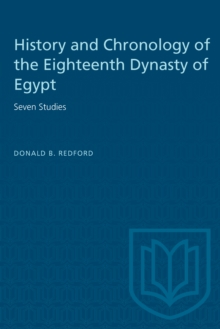
The Unfinished Mechanics of Giuseppe Moletti : An Edition and English Translation of His Dialogue on Mechanics, 1576 PDF
by Walter Laird
Part of the Heritage series
Description
Mechanics has long been recognized as the pivotal science in the decline of Aristotelian natural philosophy and the rise of the new, mathematical physics of the Scientific Revolution.
Less well known, however, is the earlier transformation of mechanics from a practical art into a theoretical and mathematical science.
This transformation was occasioned by the recovery of the pseudo-Aristotelian Mechanical Problems and its assimilation in the course of the sixteenth century to the Aristotelian model of the subalternate or middle sciences, which deal with natural subject matter but draw their principles from geometry or arithmetic. In his Dialogue on Mechanics, Giuseppe Moletti made the most explicit and thoroughgoing attempt to determine the geometrical principles of Aristotelian mechanics, to establish its Euclidean foundations, and so to realize in fact the subalternation of mechanics to geometry.
Having done this in the First Day, he then set out in the Second to extend mechanics generally to explain all motions through the analysis of their forces and resistances.
In the process he anticipated Galileo in asserting that all heavy bodies, whatever their weights, fall with equal speeds, and he realized that the same resistance that makes a body hard to move also makes it hard to stop – which is almost the law of inertia. Written in dialogue form in Italian (rather than in Latin) for a courtly and practical audience, the Dialogue was left unfinished when Moletti quit the Gonzaga court at Mantua to take up the mathematics chair at the University of Padua.
Never before published except for brief extracts, the full Italian text is edited from the manuscripts and printed here for the first time, together with a facing-page English translation.
The extensive notes that accompany the text cite and quote from a number of Moletti's other, mostly unpublished, works and his numerous sources.
In his introduction, W.R. Laird sets the Dialogue within the historical background of medieval and Renaissance mechanics, sketches the life and works of Moletti, and analyses the arguments and the geometrical theorems of the Dialogue. The Unfinished Mechanics of Giuseppe Moletti offers an unprecedented look at the transformation of Aristotelian mechanics into a mathematical science in the generation before Galileo.
Information
-
Download - Immediately Available
- Format:PDF
- Pages:234 pages
- Publisher:University of Toronto Press
- Publication Date:15/12/2000
- Category:
- ISBN:9781442620940
Other Formats
- Hardback from £59.69
Information
-
Download - Immediately Available
- Format:PDF
- Pages:234 pages
- Publisher:University of Toronto Press
- Publication Date:15/12/2000
- Category:
- ISBN:9781442620940










